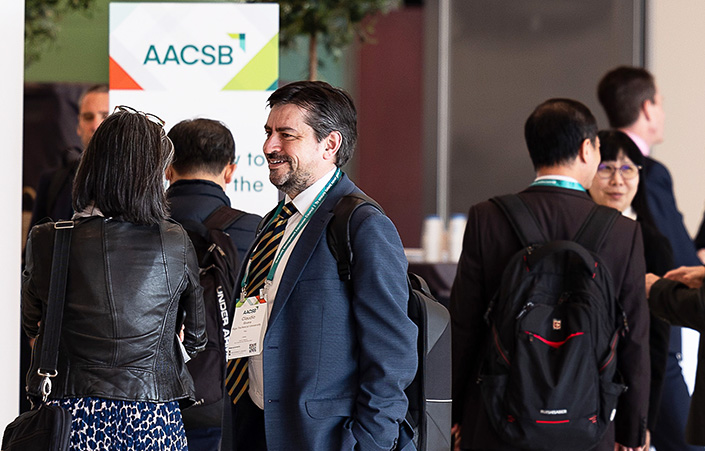Transformative Innovation Policy Consortium
Recognition Year(s): 2021
School: Business School, University of Sussex
Location: United Kingdom
Transformative Innovation Policy (TIP) places social and environmental problems at its core and aims to address global societal challenges.
In the last 60 years, two conceptual frameworks have dominated innovation policymaking. The first frame, dominant between the 1960s and 1980s, focused on how policy could provide incentives for the market to produce the desired levels of science research and development. The second, which dominanted from the 1990s to the present, supports commercialization and bridges the gap between discovery and application. Both frames assume that economic growth always has positive effects, ignoring the unintended consequences of science and technology development that have adversely impacted society and the environment.
In their Research Policy paper, University of Sussex academics Johan Schot and Ed Steinmueller propose a “third frame” of innovation policy, known as Transformative Innovation Policy (TIP), which places social and environmental problems at its core and aims to address global societal challenges. TIP is built on the premise that the negative impacts of innovation can outweigh positive effects. Rather than looking at incremental changes, TIP focuses on bringing about transformative change—taking into account socio-technical systems, including their actors, power dynamics, infrastructures, beliefs, and assumptions.
TIPC researchers have developed the TIPC methodology, a multistep learning journey that uses formative evaluation as a springboard toward transformative outcomes. The methodology is now being applied in a series of live policy experiments, each embedded in the context of TIPC member countries. The diversity of experimental contexts across global economies provides rigor and allows for comparative analysis of transformative outcomes and systemic change. It is a “learn by doing” approach applied at the interface of academia and practice.
The learnings and outcomes of each experiment are shared widely through TIPC’s policy lab, an open space that enables connections between different projects, experiments, and geographies, as well as the designing of tools that support transformation processes.
Call to Action
Unprecedented global challenges, including climate change and growing inequality, call for urgent action, yet the transition toward a more sustainable and just future remains slow. Current policy processes tend to be incremental and focus on addressing the symptom of a problem rather than bringing about the transformation required to meet the United Nations’ Sustainable Development Goals (SDGs).In the last 60 years, two conceptual frameworks have dominated innovation policymaking. The first frame, dominant between the 1960s and 1980s, focused on how policy could provide incentives for the market to produce the desired levels of science research and development. The second, which dominanted from the 1990s to the present, supports commercialization and bridges the gap between discovery and application. Both frames assume that economic growth always has positive effects, ignoring the unintended consequences of science and technology development that have adversely impacted society and the environment.
In their Research Policy paper, University of Sussex academics Johan Schot and Ed Steinmueller propose a “third frame” of innovation policy, known as Transformative Innovation Policy (TIP), which places social and environmental problems at its core and aims to address global societal challenges. TIP is built on the premise that the negative impacts of innovation can outweigh positive effects. Rather than looking at incremental changes, TIP focuses on bringing about transformative change—taking into account socio-technical systems, including their actors, power dynamics, infrastructures, beliefs, and assumptions.
Description
To put TIP ideas into action, Professor Johan Schot established the Transformative Innovation Policy Consortium (TIPC) as a five-year global knowledge platform. TIPC is currently coordinated by the Science Policy Research Unit at the University of Sussex, the Centre for Global Challenges at Utrecht University, and Ingenio in Spain. TIPC’s members comprise science, technology, and innovation researchers; government policymakers; and funding agencies from Colombia, Finland, Norway, South Africa, and Sweden. TIPC has established hubs in Africa and Latin America and has associate partners in China, Senegal, Ghana, and Kenya. Since its formation, TIPC has been bringing together policymakers and researchers to co-create transformative innovation policies and practices that help meet the SDGs and can be adopted worldwide.TIPC researchers have developed the TIPC methodology, a multistep learning journey that uses formative evaluation as a springboard toward transformative outcomes. The methodology is now being applied in a series of live policy experiments, each embedded in the context of TIPC member countries. The diversity of experimental contexts across global economies provides rigor and allows for comparative analysis of transformative outcomes and systemic change. It is a “learn by doing” approach applied at the interface of academia and practice.
The learnings and outcomes of each experiment are shared widely through TIPC’s policy lab, an open space that enables connections between different projects, experiments, and geographies, as well as the designing of tools that support transformation processes.
Impact
TIPC has created a new narrative around TIP and applies its methodology through global policy experiments. Anticipated impacts include:
- Water and sanitation: The South African National Biodiversity Institute’s Living Catchments Project is part of a national roadmap addressing water scarcity in South Africa. TIPC researchers and government stakeholders are working together on transforming the governance and alignment of the water ecosystems and building infrastructure towards a more secure water future.
- Health and food systems: TIPC researchers and Sweden’s Innovation Agency, Vinnova, are examining everyday food and transport systems using a mission-oriented approach to policy interventions that can bring about transformative change.
- MOTION is a collaboration between TIPC and the European Institute of Technology’s Climate Knowledge and Innovation Community, currently focusing on three projects:
- Sustainable Urban Shared Mobility: An opportunity for European cities to rapidly reduce transport-related carbon emissions, improve air quality, and enable a more user-centric travel system.
- System and sustainable Approach to virTuous interaction of Urban and Rural LaNdscapes (SATURN): Tackling climate change via the governance of nature and landscapes.
- Adaptive Cities Through integrated Nature-Based Solutions (ACT on NBS): Developing innovation ecosystems to rapidly increase the application of nature-based solutions within urban environments.
- TIP in Latin America: The Latin American Hub has launched TIP projects worth 1 million GBP (about 1,394,100 USD) on the role of recyclers in urban residual waste and the circular economy, new peri-urban food alternatives, inclusion of small producers in organic food projects, and new approaches for marginalized communities to access clean water.





